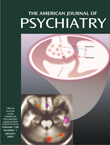Rethinking Ethnicity and Health Care: A Sociocultural Perspective
Many psychiatrists all over the country, but specially in Illinois, New York, Florida, Texas, Arizona, and California, practice in the midst of populations that belong to many cultures. Projections by the U.S. Census Bureau would suggest that the Hispanics will soon be the majority in a number of large cities. Even those who never thought of themselves as cross-cultural psychiatrists are learning rapidly that cultural factors influence their practice.
This book is not for these or for any other clinicians. The emphasis of the book is not on “ethnicity,” a term the authors use as also meaning racial or cultural characteristics, or health care, inasmuch as there are no practical proposals to solve the problems that affect minorities. This may be the result of having only one physician among 21 contributors.
The emphasis of the book seems to be on sociocultural issues, which are not clearly defined. The authors indicate that “the way people perceive, interpret, and treat illness varies from society to society and culture to culture.” Although this is true enough, mainly for isolated social groups, one wonders whether this generalization, which seems to be one of the main tenets of the book, has any practical application. When cross-cultural issues emerge in San Francisco or Los Angeles, not necessarily because of differing disease pictures among different cultures but because the physician and the patient do not understand each other, the potential solutions require definitions that do not seem of interest to the authors. Even when the book presents serious health problems faced by minorities, the discussion does not include a clear view of action to redress inequalities.
Some of the cultural groups considered here are characterized in ways that resemble more a cartoon than their actual American reality. That is the case with the Hispanics. The book ignores a solid body of work developed in recent years on the diagnosis and treatment of medical disorders in this group.
Reprints are not available; however, Book Forum reviews can be downloaded by Journal subscribers at http://ajp.psychiatryonline.org.



